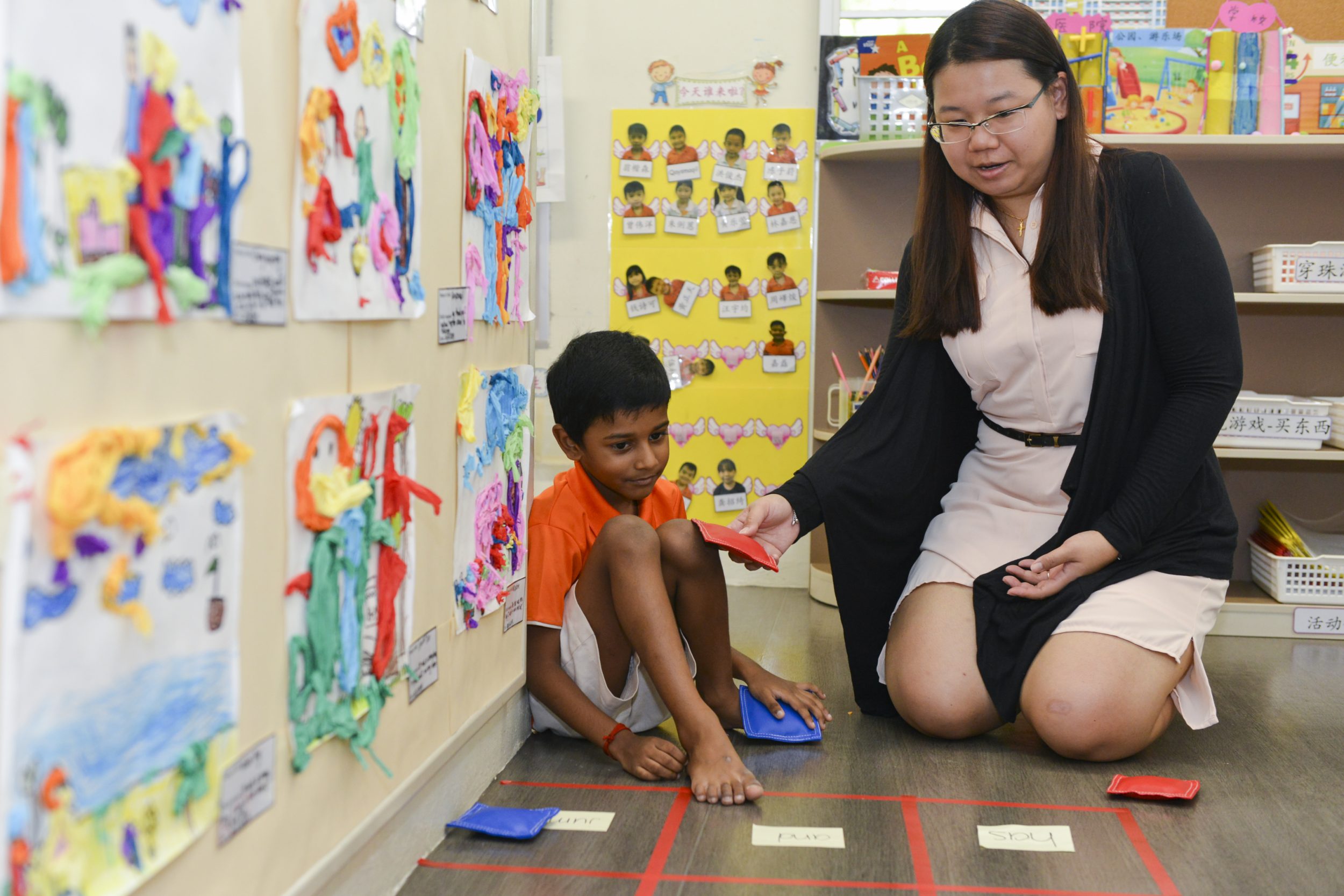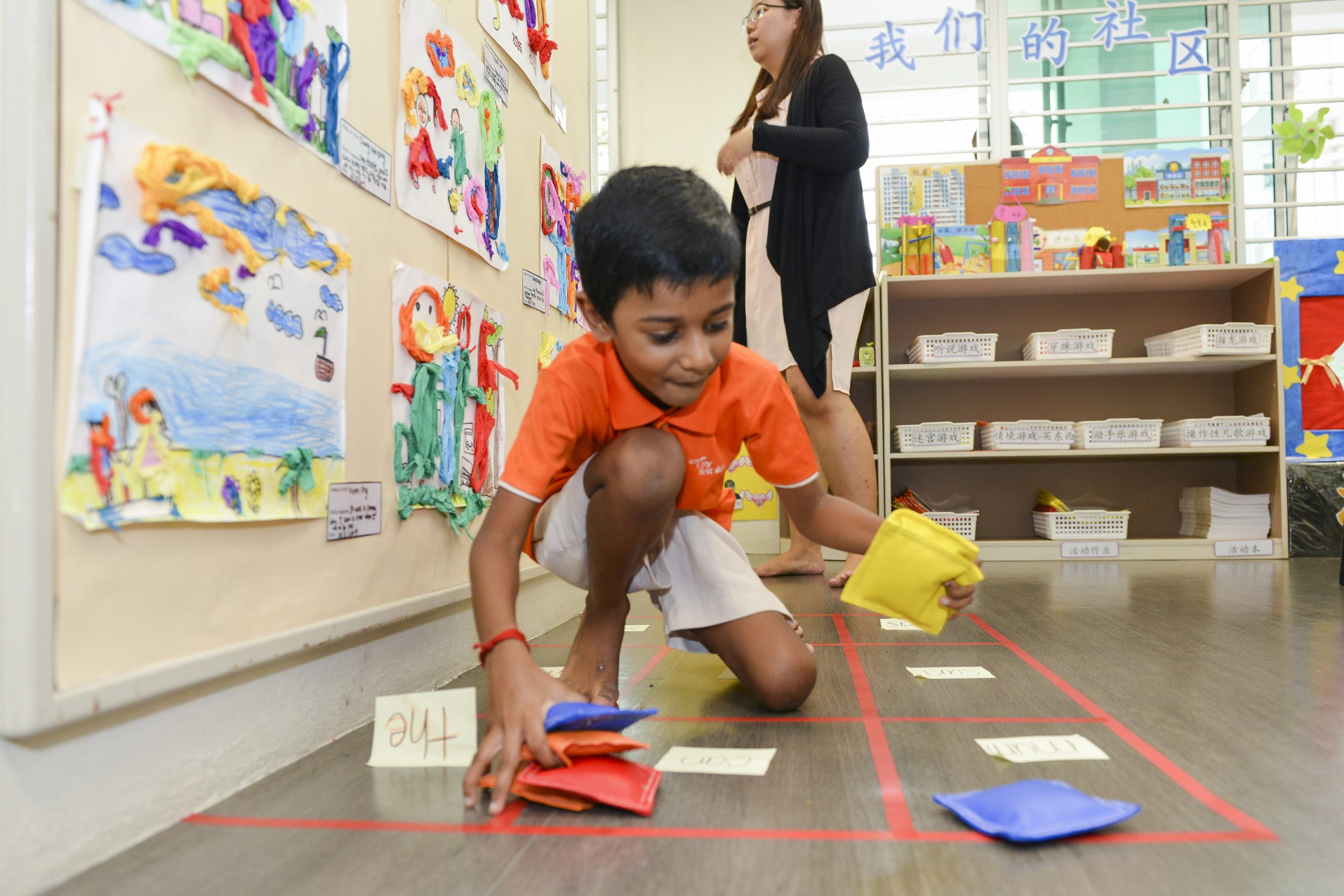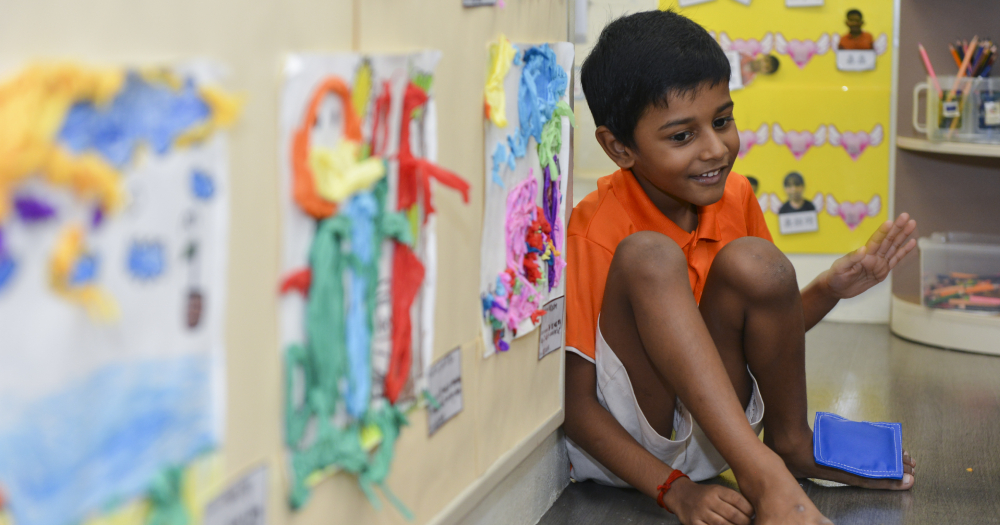Being a parent is stressful at times, and most parents could use all the help they can get.
Fortunately, the Government announced earlier this year that parents of children with developmental needs will receive more support.
Wait... what are developmental needs?
Children with developmental needs face delays in their cognitive, physical or sensory development. The challenges they face could include speech and language difficulties, communication difficulties, delays in motor skills development, frequent meltdowns, vision or hearing loss.
Take the experience of 6-year-old Raoul S/O Selvanathan and his family for example.
Raoul’s parents and teachers realised that he faced challenges in articulating letters and words, writing certain letters, and forming sentences in appropriate sentence conventions.
Programmes set up by the Ministry of Social and Family Development (MSF) aim to support families like Raoul’s.
Under MSF’s Learning Support programme, Raoul has received three sessions of one-to-one intervention and several in-class sessions. Raoul’s Learning Support Educator uses multi-sensory approaches to help him with letter formation, as well as to decode and pronounce 3 – 4 letter words.
 Image from MSF
Image from MSF
He has since started to show improvement in reading and articulation.
Raoul’s mother, who is an infant educarer herself, is glad about Raoul’s progress and is working closely with the Learning Support Educator and his preschool teacher to reinforce these strategies at home.
Sounds great but what kind of support is available?
There are a few different early intervention programmes that aim to help your child communicate better with others, acquire and apply knowledge, and develop skills for everyday tasks.
These programmes include the Early Intervention Programme for Infants and Children (EIPIC), Developmental Support - Learning Support (DS-LS), and Developmental Support Plus (DS-Plus).
We’ll give you a crash course on these programmes:
Let’s start with EIPIC.
EIPIC provides therapy and developmental services for infants and young children with moderate to severe developmental needs.
The programme provides interventions through therapists, EIPIC teachers and psychologists.
They work with the child 2 to 3 times a week (a total of 5 – 12 hours per week) at Early Intervention Centres, to equip them with improved motor, communication, social, self-help and cognitive skills, to maximise the developmental growth potential of the children and minimise the development of secondary issues.
Applicants should be six years old or below and either Singapore citizens or permanent residents.
To be eligible, the child has to be assessed as having moderate to severe developmental, intellectual, sensory, or physical needs or a combination of these, and be referred by a paediatrician from the Child Development Unit (CDU) at KK Women’s and Children’s Hospital (KKH), National University Hospital (NUH), or a private paediatrician.
How about DS and LS?
DS and LS are for preschool children with mild developmental needs and learning needs.
The programme provides targeted short-term interventions through a group of trained Learning Support Educators (LSEds) and therapists in the preschools.
They work with the children in their preschool once a week, and collaborate with preschool teachers to adapt teaching methods and activities to better engage and integrate these children in the classroom setting.
Applicants should be children who are in preschools (K1 and K2) and are Singapore citizens or permanent residents.
Hang on... what's the difference between LS and DS?
LS is for children whose literacy, language, social, or handwriting skills are slightly behind their age appropriate levels.
DS is for children with mild developmental needs and who require therapy support to meet their developmental milestones. DS focuses on occupational therapy, speech and language therapy, literacy and learning support, or psychological support.
Both LS and DS take place within the preschool, with each session lasting up to one
 Image from MSF
Image from MSF
– two hours.
And there's a DS-plus? Who is that for?
DS-Plus is a new programme, launched on 1st July this year.
Children who have made sufficient progress in EIPIC can now transit to receiving intervention in their preschools instead of at the EIPIC centre.
This helps them adapt to the mainstream preschool setting, and be equipped with skills within a larger class setting.
Ok last acronym: ECDA?
Bear with us for one more acronym that’s important for parents to know: That’s the Early Childhood Development Agency or ECDA.
From July 2019, oversight of Early Intervention (EI) services is progressively being transferred from the Disability Office within MSF to the Early Childhood Development Agency (ECDA).
This will give ECDA a holistic view of the learning and development needs of all children under the age of seven, and that means a more coordinated approach toward manpower and capability development for both early childhood educators and EI professionals.
This will also strengthen ECDA’s continued efforts to make preschools more inclusive.
Sounds pretty good to me.
How can parents apply for these programmes?
Parents can bring their child to visit the nearest polyclinic for assessment, which will in turn refer the child to KKH/NUH if a developmental delay is suspected. Children identified to have developmental needs will be referred to suitable Early Intervention services.
For DS-LS, parents can check if their child’s preschool already offers the programme, and if so, the preschool will arrange for an assessment for the child.
Preschools that are interested to offer DS and LS may contact the regional DS-LS providers to learn more about the programme and to screen children with suspected developmental delays for EI support. The screening is at no cost to the preschool or parents. More information can be found at www.sgenable.sg.
This article was sponsored by the Ministry of Social and Family Development (MSF)
Top image by the Ministry of Social and Family Development (MSF)
If you like what you read, follow us on Facebook, Instagram, Twitter and Telegram to get the latest updates.
